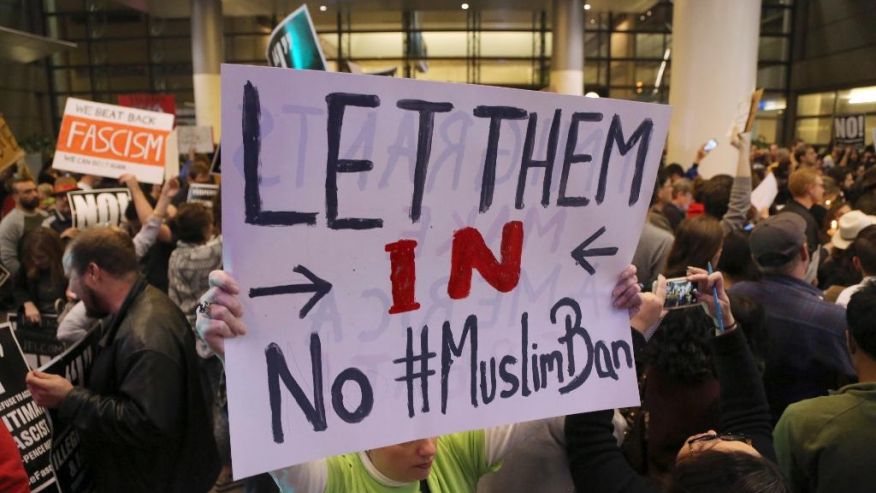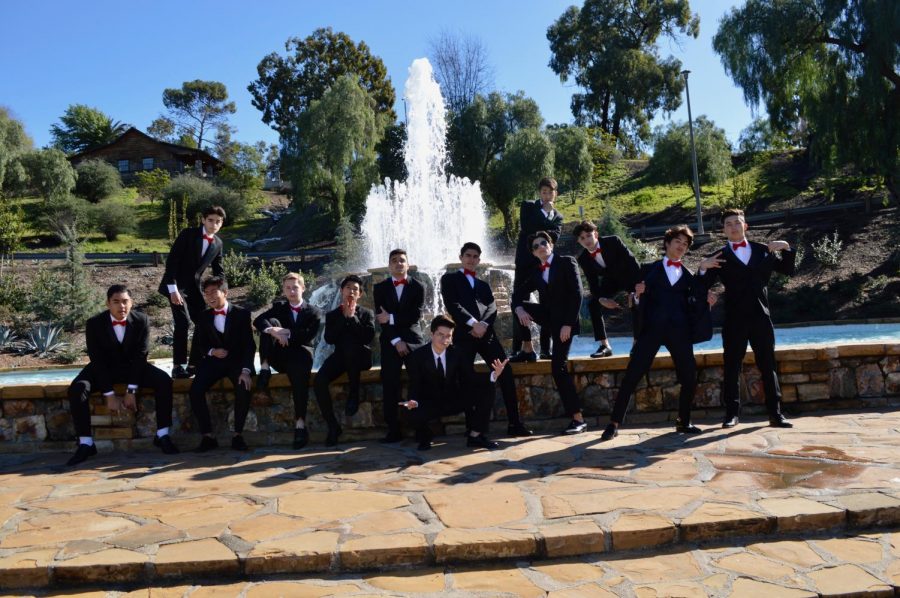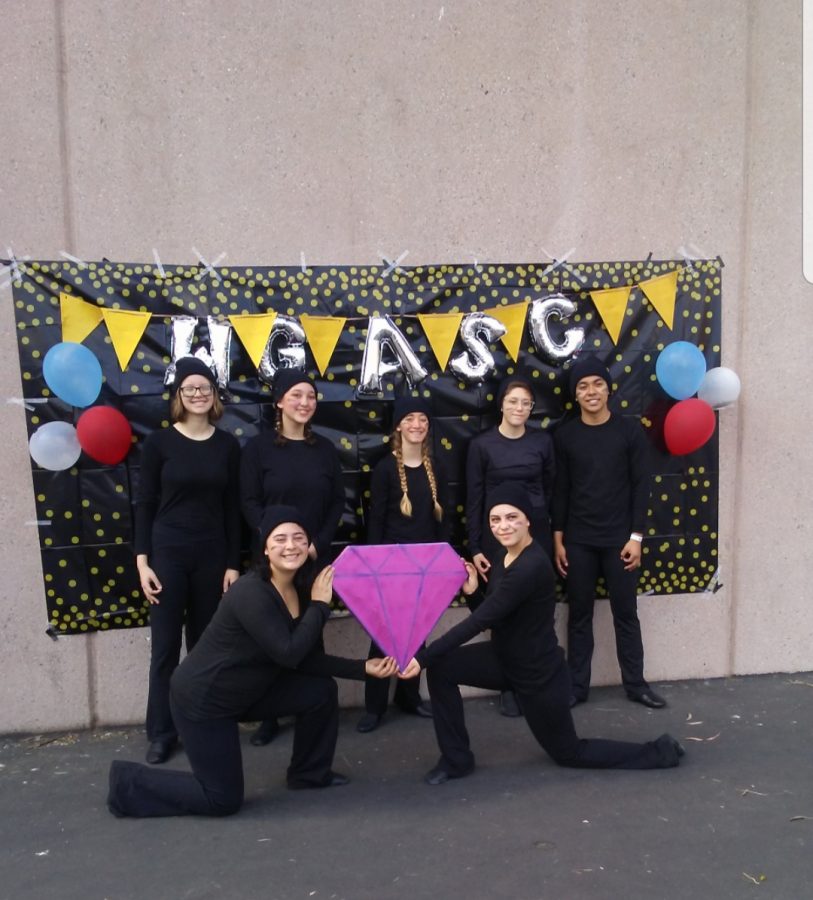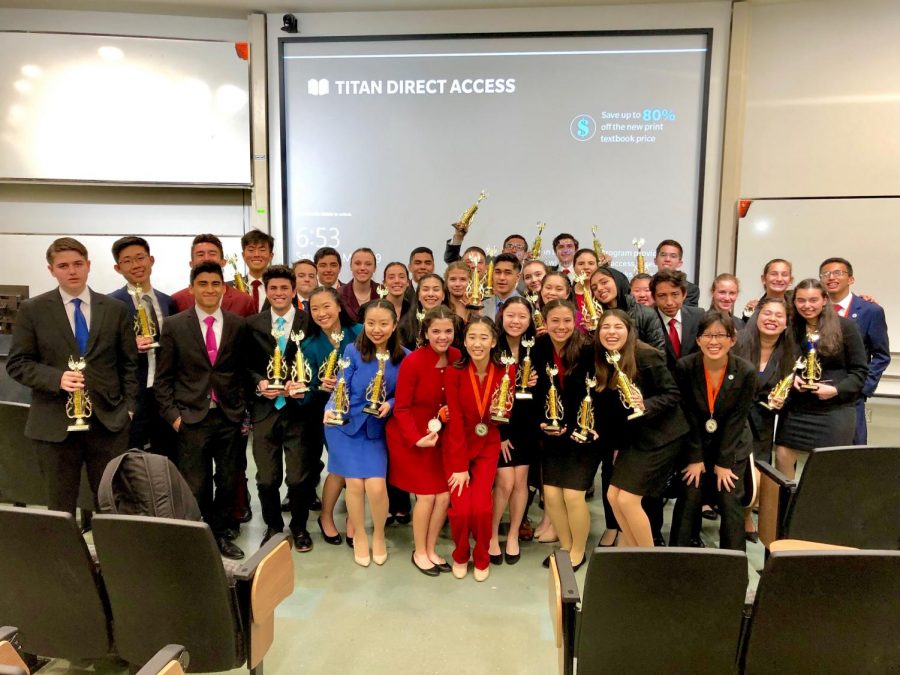Turmoil and chaos ensued as President Trump signed an executive order to ban immigrants and green card holders from seven Muslim majority countries including: Yemen, Syria, Sudan, Iran, Iraq, Libya, and Somalia on Jan 27. Worldwide, 218 million people would be denied access into the United States. Millions were held up at airports across the states and while others were stuck in foreign countries with valid visas and US airline tickets.
US district judge, Ann Donnelly voted down the executive order calling into question the constitutional validity of the ban. However, despite the quick veto, President Trump still plans to carry out his ban on immigration and has already affected millions of families–one of which attends Fullerton Union High School.

Photo by Kaya Ortega
Cyrus Shadaram, a senior at FUHS, has family in Iran that have already felt the effects of the entry ban. In retaliation to President Trump’s harsh immigration reform, the Iranian government has banned all immigration from the United States. Shadaram was just visiting Iran last summer and now will not be allowed to go back.
“I have family in Iran…” Shadaram said, “…I am no longer able to see them.”
Shadaram’s father came to the United States right before the 1979 revolution in Iran under the Carter administration. He was able to attend college, meet his wife, and build a successful life in America. However, the rest of his family was not so fortunate.
“His parents and sisters in Iran have been hard to meet with, which is one reason why I never got to see my cousins and my aunt until I was a teen,” Shadaram said.
Shadaram’s family in Iran is trying to gain entrance to the United States. His aunt has been working on her green card and citizenship for years; and now, under Trump’s entry ban, it is unclear if she can come to the United States. President Trump’s targeting of Islam majority countries has hurt his family in more ways than one.
Under the Obama administration, the United States, China, France, Great Britain, Russia, and Germany proposed to contract international sanctions in Iran in exchange for the Iranian government stopping its pursuit of nuclear weaponry.
“Our whole family was eager for the nuclear deal to pass so the U.S. and Iran would be on good terms but since Trump will shut it down, it will deter a lot of progress made.” said Sharadam.
“The people of Iran love Americans and the when media shows them as hating America, it’s a bit outdated and untrue,” Sharadam said. “Unfortunately, their government is corrupt and the people know it.”
Iranian-Americans have faced harsh backlash since Sept. 11 even though no large terrorist groups have ever emerged from Iran. Fear has driven hatred and mass categorization of culture and religion and the election of President Donald Trump directly reflects that.
“I am embarrassed by who we chose to represent us but I am confident that we will change for the better,” Shadaram said. “As an American I feel like we will always try to persevere for progress even in times like these.”
Shadaram and his family continue to be hopeful of America’s relationship with Iran, with Iranian-Americans, and with the Middle East in general. Over the past couple weeks, people of all backgrounds have been protesting at airports and in major cities such as Los Angeles and New York, showing overwhelming support for those impacted by the immigration ban.
“We are very glad to see people as passionate as they have been. For people to speak up for us means a lot and it shows how people can put aside their differences,” Shadaram said.
On Feb. 9, the U.S. Court of Appeals ruled 3-0 against the proposed ban, in response, President Trump signed into law a new immigration ban on Mar 6. The new ban excludes Iraq and allows green card holders to come to the U.S. but still bans travel from the other five Muslim majority countries.












